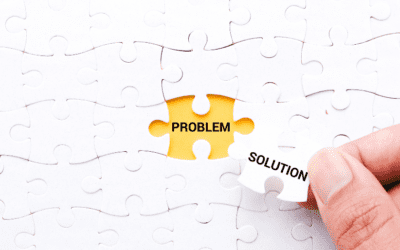Thanks to open floor plan offices, it’s common to see rows of knowledge workers heads down in their laptops with an assortment of earbuds and headphones blocking out the clacking keyboards, phone calls, and conversations of their coworkers. People are just as likely to listen to music and maintain concentration amid the sonic clutter of the office as they are to draw motivation and find inspiration from what’s playing.
Research has shown that, under the right circumstances, music can actually be extremely beneficial for more than just drowning out distractions. Have you ever wondered if you should avoid hitting play on your favorite playlist for fear that music would make you less productive at work? Here are some reasons to add tunes to your sensory work environment.
The Facts About Music’s Effects on Productivity
Being productive in today’s distraction-ridden world is the name of the game and recipe for success, and many workers find music helpful in staying focused. In fact, 71% of workers say that music makes them more productive. But relying on music to get the most out of workers is nothing new; factories piped-in music to boost employee output as far back as World War II. The BBC even created a program specifically for boosting worker morale called, “Music While You Work.”
Cuban cigar makers used to pay guitar players out of their own wages to provide a soundtrack for their long and boring days in the factory. But music isn’t just for those performing mindless, menial tasks or hard labor—even surgeons perform better when listening to music.
I find that deciding which music to listen to comes down to a combination of personal preferences and the activity you’re attempting to participate in at the time. If you’re simply looking for the dopamine boost that comes from things that make us happy, listening to anything you like will generate the same effect, whether it’s an R&B jam or a country ballad. The music is associated with pleasure and you get the upside of something familiar and favored.
When you’re trying to perform more brain-intensive activities, you can use some upbeat tunes to get pumped up ahead of time, but downshift to something instrumental and soothing when it’s time to focus. And if you’re trying to actually read and comprehend something, it’s often best to switch over to some white noise or nature sounds, because listening to music could actually hamper the success of those activities.
Use Music to Your Advantage as a Product Manager
Musical preferences are a way to assert our individuality; so being able to audibly escape into a soundscape of your own creation is an unrivaled way to renew your confidence in your decisions and capabilities. Especially when your ego’s been dinged by overbearing executives or needling coworkers.
Music for productivity can also help us reduce the physical symptoms of stress, which comes in handy since product management can be a pretty stressful job. Only 25 minutes of listening can influence the autonomic nervous system, bringing down blood pressure, heart rate, and anxiety.
Before going into a customer feedback meeting or brainstorming session, a little music will help product managers make the most of the opportunity.
“It’s shown that when you’re in that particular mood state, you take in more options, you don’t narrow your focus, and that is beneficial to creative problem solving,” says music education and therapy professor Teresa Lesiuk. “When you’re in that mood state, you’re better at problem-solving and thinking creatively.”
However, when you’re trying something new or deep thinking and close reading is required, music may be doing you more harm than good. At a minimum, switch over to lyric-free, repetitive music that will live fluidly in the background while your brain does some heavier lifting. Ambient noise has actually been shown to improve creativity when listened to at relatively low volumes; so try listening to recorded sounds of the ocean, rain, a flowing river, or the sound of a crackling fire.
It’s best to have pre-curated your listening selections ahead of time so you can just press play and get back to work; if you’re constantly trying to decide what to hear next the switching costs of moving between Spotify and PowerPoint will undo any positive gains you might realize from the music itself. Likewise, listening to familiar music is going to be much more helpful than discovering amazing new songs that may distract you from your actual work.
You will want to spend a bit of time investigating “background music” that will keep you focused while not pulling your attention away with sick beat drops and transcending lyrics. There are plenty of playlists and curated selections out there to choose from.
Introduce Music for Productivity to your Workplace
In general, music consumption should be a private affair, even when you’re in a public setting. If you’re in an open work area, break out your headphones and use them instead of playing music over your computer or phone’s speakers.
Since you’re going to be wearing these a lot, don’t settle for some scrappy pair of earbuds; instead, invest in some quality audio gear. If you also plan to use them for phone calls, don’t ignore the importance of a quality microphone; which is often an afterthought for mid-market headphones.
Whether you’re an in-ear or over-the-ear person is really a matter of personal preference, but if your coworkers tend to be noisy, then splurge on a noise-canceling model. Trust me, it’ll be worthwhile. And don’t be afraid to go the Bluetooth route to avoid the clumsiness of wires getting in your way.
When you have your own office (or you’ve camped out in a conference room), it’s alright to give your ears some airflow and play music out loud. But no one else should be able to hear your music, so keep it down to a reasonable volume. Leave the singing solos for the drive home or karaoke night after work.
Even if you might consider yourself an amazing tastemaker and curator of great musical finds, don’t subject your coworkers to listening sessions they didn’t ask for. If you’ve got something you want to recommend, send them a playlist link and save the group listening party for after-work socializing. Musical tastes vary widely, and not everyone is going to dig your bootleg Drake freestyle mix or the acoustic KISS tribute album you find so enjoyable; so might you want to keep your Tupac obsession to yourself.
Press Play, but Pause Accordingly
Music for productivity’s sake deserves to be a part of any product manager’s workday routine to give a creative boost, dopamine rush, and help them focus to get the most out of work time. But there are plenty of times when music will do more harm than good, so save the soundtrack for transitioning between work modes and knocking out repetitive grunt work. Put it on standby when you’re trying to master something new or working on complex, strategic items.
You can prepare by coming up with the perfect variety of musical options to help you get pumped up, buckled down, or locked in depending on what the occasion calls for.
But don’t forget to take those headphones off and dial down the volume sometimes so you can actually interact with your coworkers! If everyone stays in their audible bubble all day, we miss out on all the great things we can learn and share with our colleagues.



